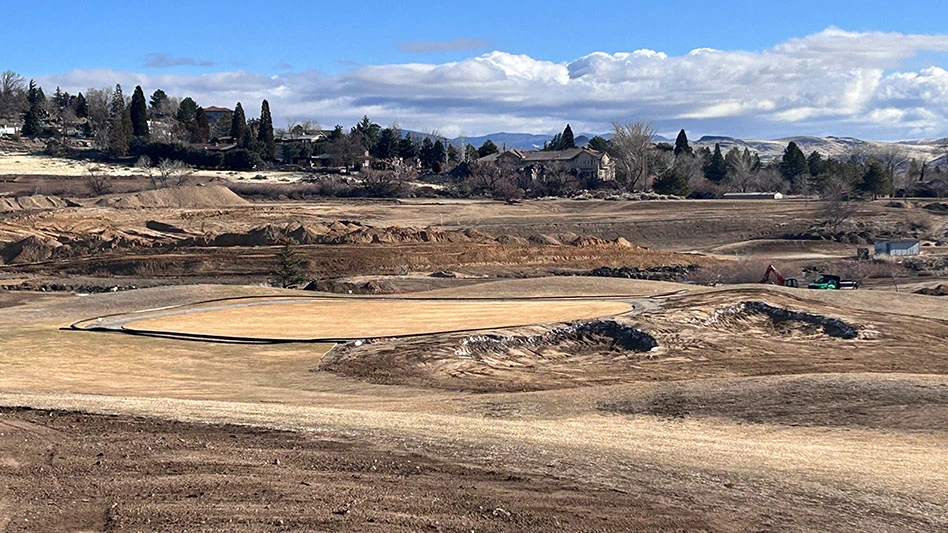What a crazy end of the internship visit season for me. This summer I visited 13 of the interns from the Golf Course Turfgrass Management Program at Penn State. The visits took me to various spots across the United States and also to Ireland.
Now in my eighth year of internship visits at Penn State, I have come to see what seems to motivate students, what actually teaches them something and what discourages them to the point where I will be surprised if they’re in the business in 10 years. It’s a little depressing to think about, but it’s the reality of the business. At least for now.
While the superintendent and his or her assistants play a critical role in a successful internship, I have to admit that a lot of the weight on whether an intern will be successful starts well before a student arrives at the course. Once on property, the responsibility is shifted towards to the superintendent and the staff.
So without further discussion, here’s a Top 10 of what makes a good internship. Some of these are for the students, some for the superintendents/assistants and some for both.
10 Involvement from advisors. Students that are given no direction and randomly send out resumes to many different courses will fail. Advisors must play an active role in finding a good fit for each student. One of the reasons that I visit each student is to find out about the internship at that course and for that superintendent.
9 Extended internships. I can’t say enough about how little is learned on a three-month internship. While doing several of them can help diversify a portfolio, working three months in the heat of the summer is less than an ideal learning environment. Figure out a way to attract an intern that sticks around six-plus months.
8 Go Top 100. While I don’t subscribe to this personally with my students, I can’t help but recognize that getting a big name on your course will help your resume. Having a single three-month experience at a Top-10 course on your resume, however, won’t do much for you. Be smart about these selective work experiences on your resume. They’re important, but not everything.
7 Work at a small club. This ranks above the Top 100 course because you’re probably (not always) going to learn more here. Students generally are more involved and take on a lot of different tasks. They also know how to manage a course with minimum resources. Couple this with No. 6 and now you’re building a portfolio.
6 It’s not about the money. Selecting an internship, and even first or second job out of school, should not be about money or titles. Not yet anyway. Throw out the idea that one course pays $10/hour while the other $13. If that’s how you choose your internship, then good luck to you.
5 Involvement in “extras.” Not everyone can host a major event at their club, but that doesn’t mean there aren’t opportunities for students to be involved in more. A few examples could be volunteering at a nearby tournament, attendance at a board meeting, involvement in USGA/consulting visits, special projects, etc.
4 Give them some responsibility. I’m a big fan of earning responsibility and not just getting it for being there, but students that are given additional responsibilities (even just a taste) may actually surprise you. Don’t be afraid to put them to the test to see how they hold up. If they fail, don’t be afraid to give them a second shot.
3 Get them to drink the Kool-Aid. This should probably be next, but if superintendents do No. 2, then they are probably doing this anyway. Students want to be part of a team and not treated as general labor. Crews that get students to drink the Kool-Aid of the maintenance philosophy and the team will get a harder working and happier intern.
2 Find/Be a mentor. Regardless if you’re the employee or employer the responsibility is the same. Employees must seek out internships where they will be mentored. Superintendents (and their assistants) must be willing to dedicate extra time to mentor their interns.
1 Have a plan. Without a defined five- or even 10-year plan, you certainly will not achieve many of the items listed above. You may get lucky and hit a couple or even a few, but having a plan of what you want to get out of your internship as it relates to your career path will not only make for a successful internship, but also the more likelihood of a successful career.
Get curated news on YOUR industry.
Enter your email to receive our newsletters.
Explore the August 2016 Issue
Check out more from this issue and find your next story to read.
Latest from Golf Course Industry
- The Cabot Collection announces move into course management
- Carolinas GCSA raises nearly $300,000 for research
- Advanced Turf Solutions’ Scott Lund expands role
- South Carolina’s Tidewater Golf Club completes renovation project
- SePRO to host webinar on plant growth regulators
- Turfco introduces riding applicator
- From the publisher’s pen: The golf guilt trip
- Bob Farren lands Carolinas GCSA highest honor






